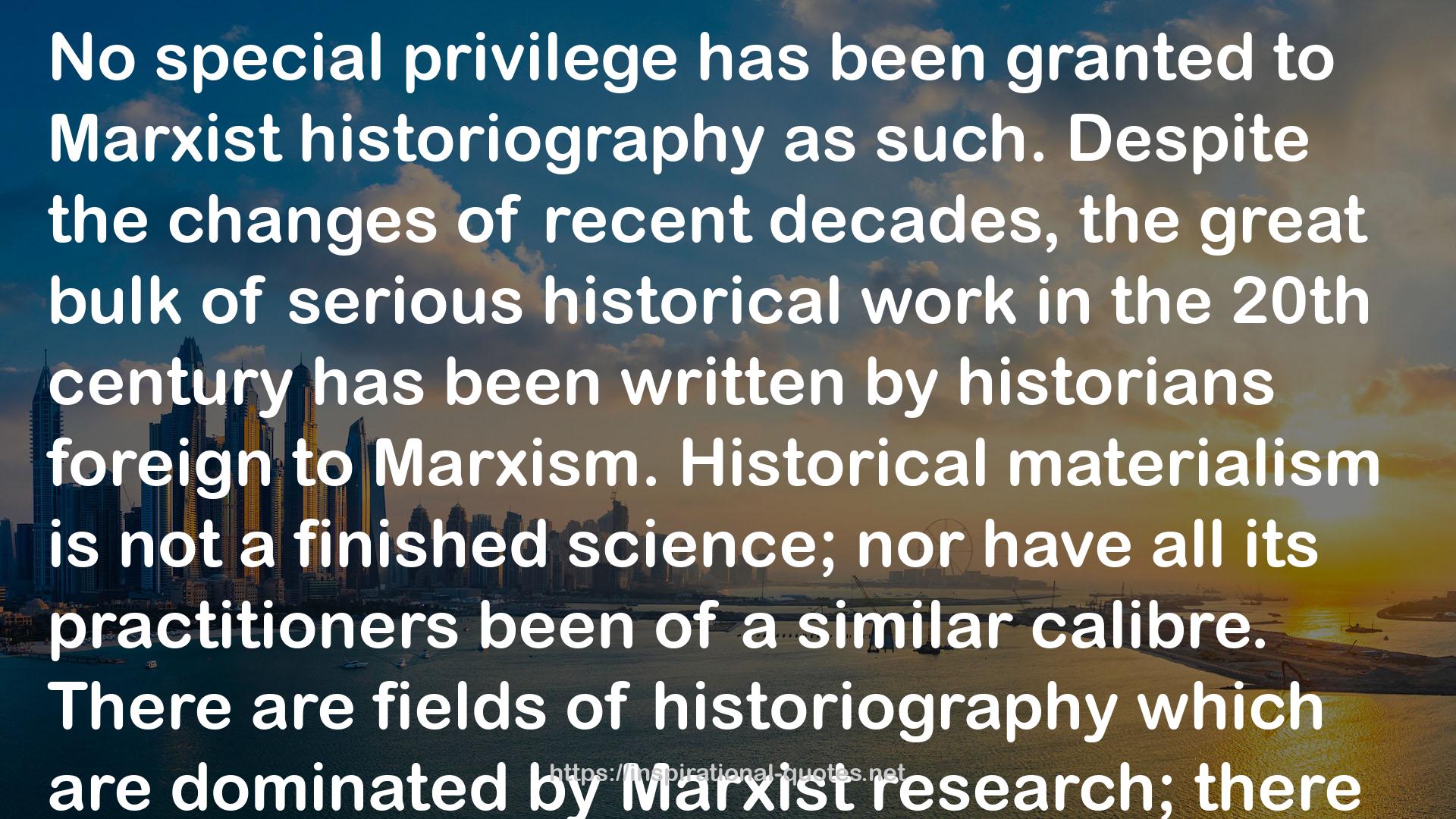" No special privilege has been granted to Marxist historiography as such. Despite the changes of recent decades, the great bulk of serious historical work in the 20th century has been written by historians foreign to Marxism. Historical materialism is not a finished science; nor have all its practitioners been of a similar calibre. There are fields of historiography which are dominated by Marxist research; there are more, in which non-Marxist contributions are superior in quality and quantity to Marxist; and there are perhaps even more, where no Marxist interventions exist at all. The only permissible criterion of discrimination, in a comparative survey which must consider works coming from such different horizons, is their intrinsic solidity and intelligence. Maximum awareness and respect for the scholarship of historians outside the boundaries of Marxism is not incompatible with rigorous pursuit of a Marxist historical enquiry: it is a condition of it. Conversely, Marx and Engels themselves can never be taken simply at their word: the errors of their writings on the past should not be evaded or ignored, but identified and criticized. To do so is not to depart from historical materialism, but to rejoin it. There is no place for any fideism in rational knowledge, which is necessarily cumulative; and the greatness of the founders of new sciences has never been proof against misjudgments or myths, any more than it has been impaired by them. To take ‘liberties’ with the signature of Marx is in this sense merely to enter into the freedom of Marxism. "
― Perry Anderson , Passages from Antiquity to Feudalism
